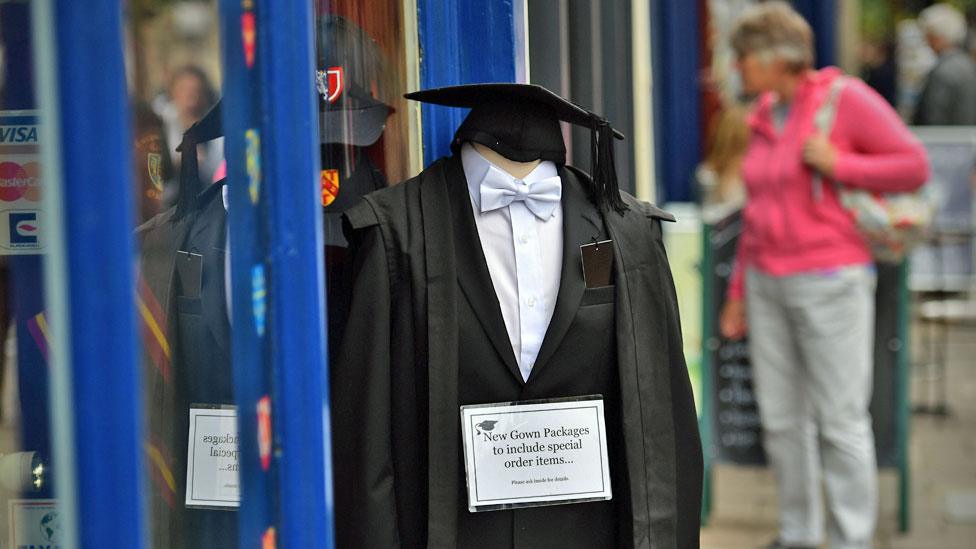Disadvantaged pupils 'stuck 18 months behind'
- Published
- comments
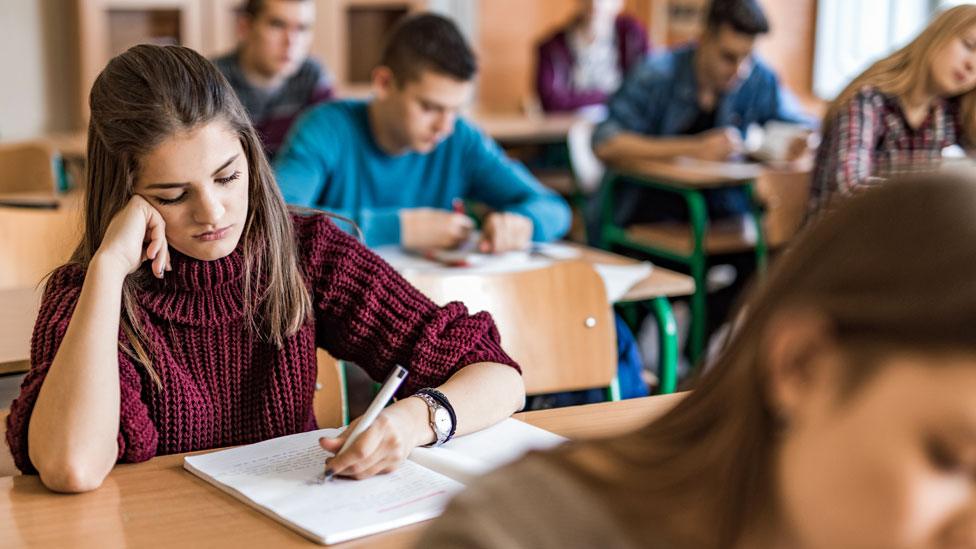
The gap in achievement is closing so slowly it would take 500 years for poorer pupils to catch up
Progress to close the achievement gap for poorer pupils in England's secondary schools is almost at a "standstill", say researchers.
The Education Policy Institute says disadvantaged pupils are on average 18 months behind the rest of the class in academic achievement by the age of 16.
At the current rate, the study says it will take 500 years to close the gap.
The Department for Education said £2.4bn per year was dedicated to supporting poorer pupils.
The report looks at the progress of disadvantaged pupils - defined as those eligible for free school meals., external


It's not going to surprise anyone that deprived youngsters tend to do less well in school - but what might be unexpected is the huge scale of the regional differences.
The 10 areas in which the achievement gap is narrowest are all in London, many with high levels of deprivation.
By the age of 16, disadvantaged pupils in Westminster are less than four months behind the national average - but in Blackpool they are more than two years behind, which is pretty disastrous for GCSE courses, which only last two years, and means all the doors opened by GCSEs, A-levels, college and university are likely to stay closed.
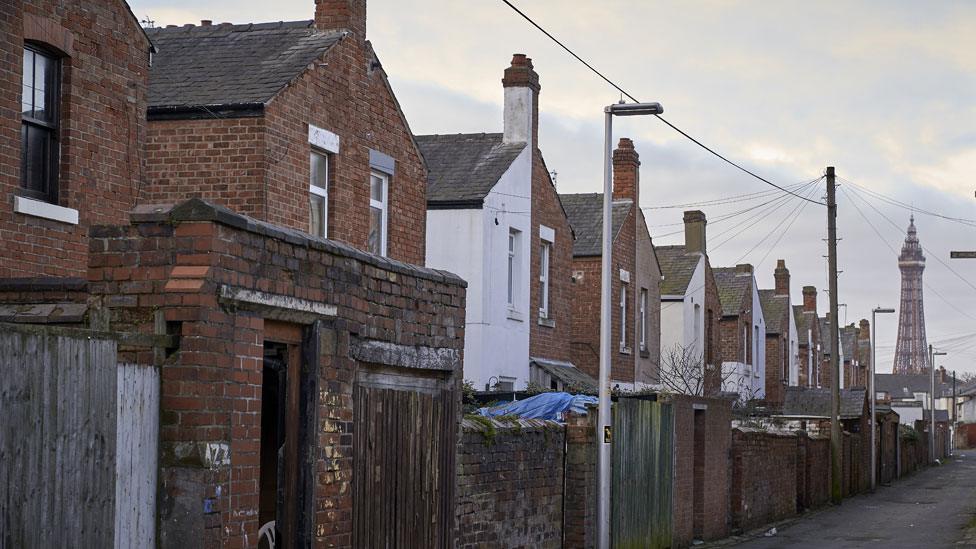
The gap between disadvantaged pupils and the rest is six times wider in Blackpool than in Westminster
It's not a simple North-South gap.
Many of the places where disadvantaged youngsters achieve the lowest results are in the North, such as Knowsley, Rotherham and Hartlepool.
But they're also struggling in Portsmouth, Kent and Peterborough.
This suggests it could be another facet of the deep-rooted underachievement of white working class youngsters, one of the biggest ungrasped nettles facing the education system.
London has a hugely diverse population, served by schools that have received a lot of investment, and debates about the educational success of the capital have often struggled to separate the active ingredients - how much it is the impact of schools and how much the intake of pupils.
Funding is another factor, as London schools also tend to receive the highest level of per pupil spending.
The new prime minister has promised extra cash for schools - and this latest study will raise questions about where it should be spent.

'Ground to a halt'
"For the first time in several years, the gap between poorer pupils and their peers at GCSE has stopped closing," says report author Jo Hutchinson.
There were some improvements between 2011 and 2015 - but this has slowed and at secondary levels is showing signs of going backwards.
David Laws, Education Policy Institute chairman and former education minister, says: "We are now witnessing a major setback for social mobility in our country. Recent progress on narrowing the education gap between poor children and the rest has ground to a halt."
The report also shows the difference in achievement between ethnic groups.
The highest achieving group are Chinese pupils, on average more than two years ahead of white British pupils - the biggest group, which is not broken down into wealthy or poorer teenagers.
Indian and white Irish pupils are also significantly ahead, but Pakistani and black Caribbean pupils have lower results than white British.
Julie McCulloch, of the ASCL head teachers' union, said the "report makes for grim reading and should be sounding alarm bells in Whitehall".
She blamed the stalling in progress on "severe financial pressures" that meant schools had to "cut back on individual support".
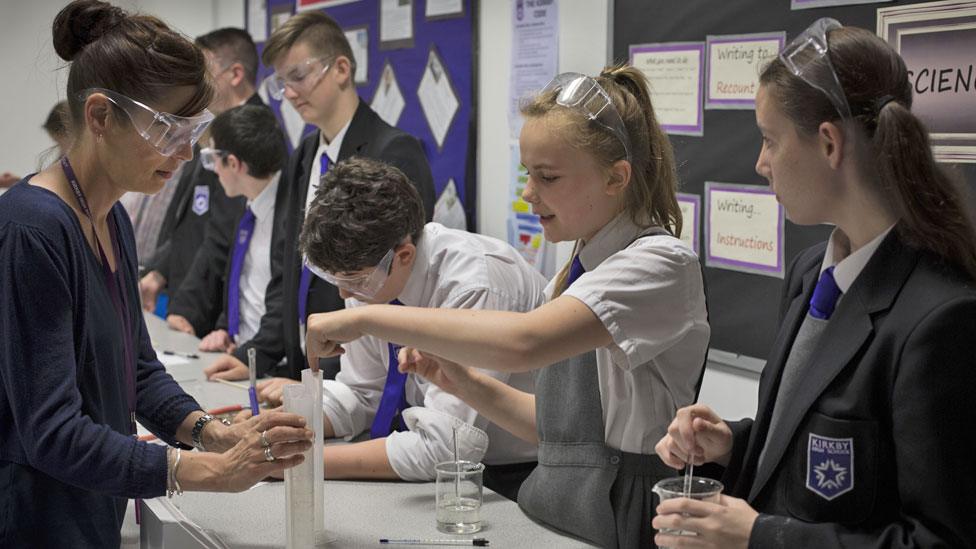
"Schools and colleges need an immediate multibillion-pound emergency investment," said Paul Whiteman, leader of the National Association of Head Teachers.
Labour's shadow education secretary Angela Rayner said: "This is the latest evidence that inequality continues to rise under the Tories, with the most disadvantaged students losing out."
But School Standards Minister Nick Gibb said that the gap for both primary and secondary schools was narrower than in 2011.
"During that time this government has delivered a range of reforms to ensure every child, regardless of their background, gets a high-quality education.
"We are investing £2.4bn this year alone through the pupil premium to help the most disadvantaged children."
- Published27 July 2019

- Published15 June 2018
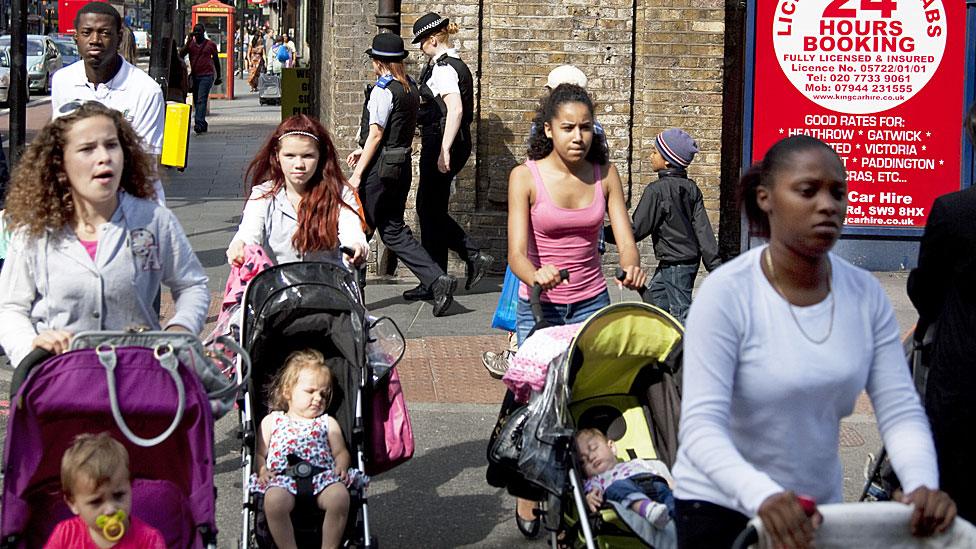
- Published25 June 2019
